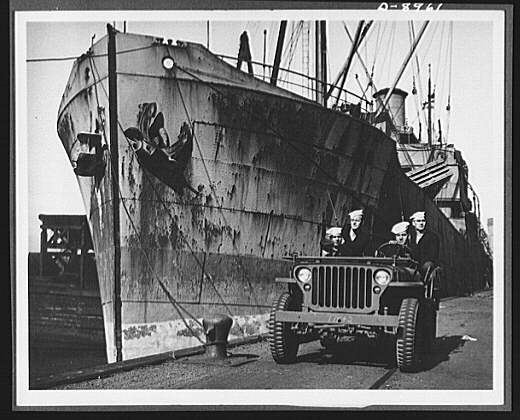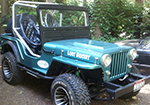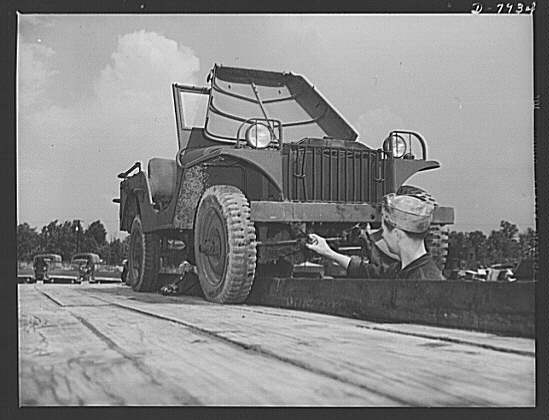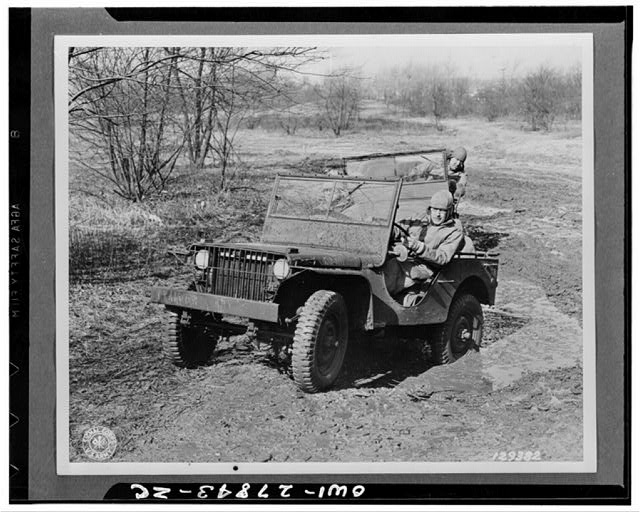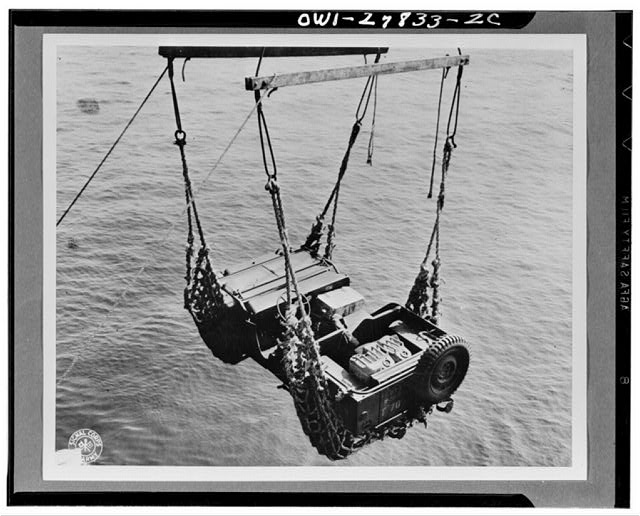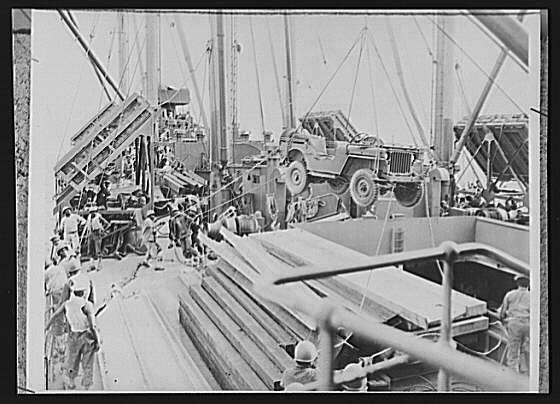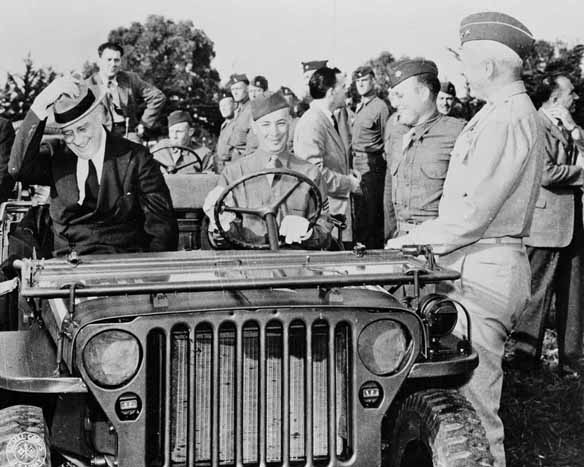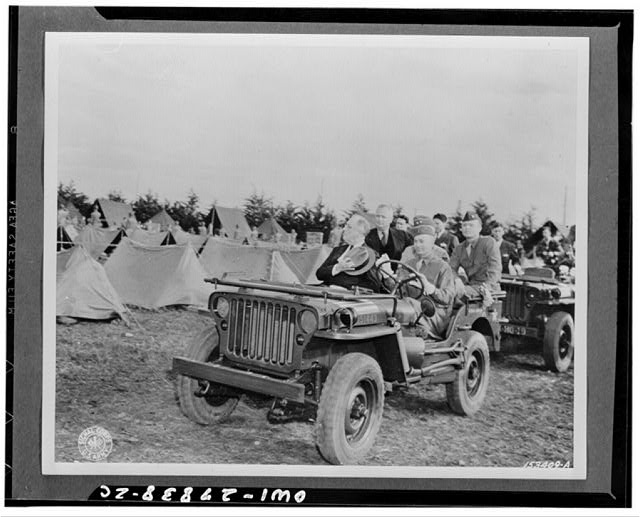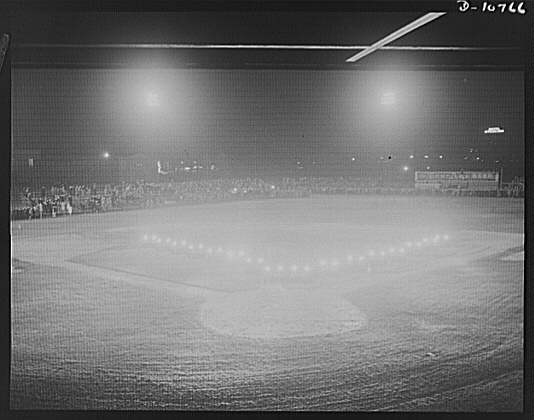Here are shots of a Willys MA and Ford GP from the Library of Congress.
Library Collections Research Archives
Just for fun, here are a couple Jeeps ‘in flight’ ….
Roosevelt, Morocco & an MB
Here’s a couple images from the Library of Congress showing President Roosevelt cruising the American troops in Morocco.
Here’s one image: http://hdl.loc.gov/loc.pnp/fsa.8e01227
Here’s a second image: morocco2: http://hdl.loc.gov/loc.pnp/fsa.8e01229
V for Victory — Anthracite Rallies in 1942
In this image, a large number of jeeps have been parked on a baseball field. The headlights display a V for victory. I searched for other pics or other information about these rallies, but didn’t stumble onto anything.
According to the Library of Congress, this is an Anthracite rally. The Jeep headlights form V for victory at a night rally for Pennsylvania anthracite miners in Wilkes-Barre on September 29th, 1942. Similar rallies were held in other anthracite area cities from September 28th through October 1st 1942.
Airfield Security during WWII in Hawaii — LOC
I really like the composition of this image. One thing I had not seen before was a gun mounted to the windshield. I guess they didn’t drop the windshield?
“Four men in a jeep at the Dusty Hollow Training Center included the following members of an airfield security detachment in Hawaii. Front seat (left to right): Private Lester H. Howell, Statesville, North Carolina and Private First Class Thomas Irvin, North Ashville, Tennessee. And rear: Private Arthur W. Blakemore, Saint Louis, Missouri and Private First Class Donald Wilson, Sanford, Florida” — Library of Congress
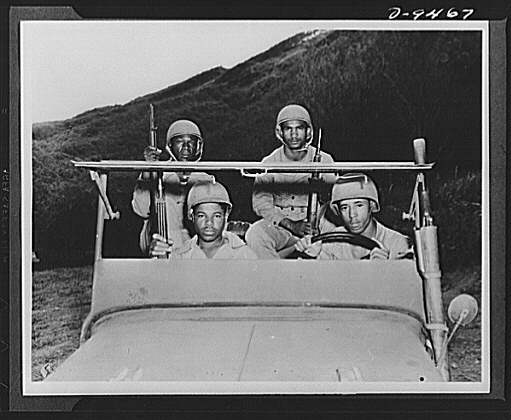
Pics from Fort Riley, Kansas
These images of maneuvers out of Fort Riley, Kansas, are some of the most calvary-like jeep pics I think I’ve seen. I suppose the older army cavalry hats contribute to that, too. These are all shot by photographer Jack Delano and hosted at the Library of Congress.
I seem to have the wrong LOC links, so I’ll have to grab them tomorrow and add them.
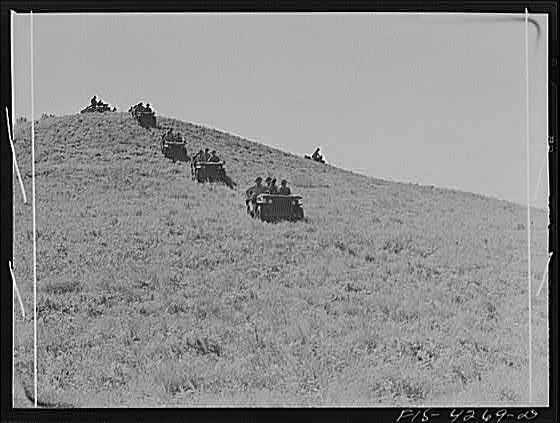
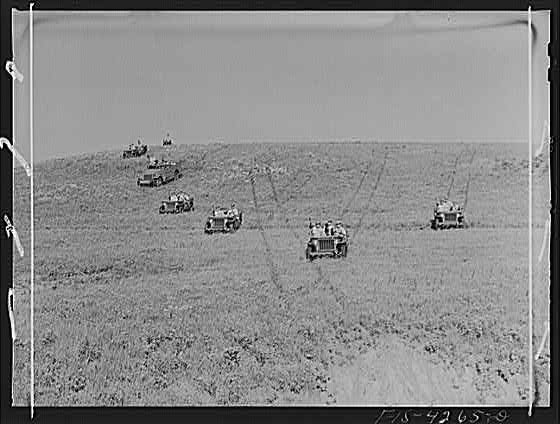
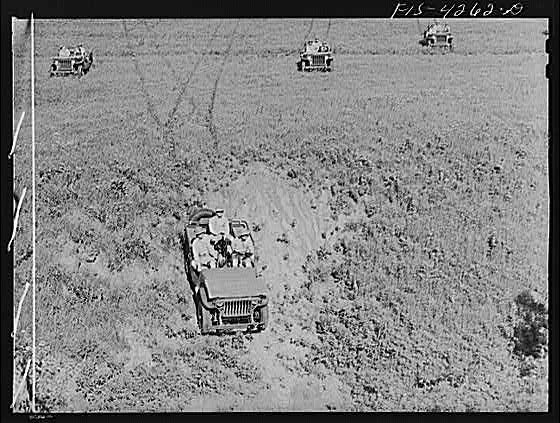
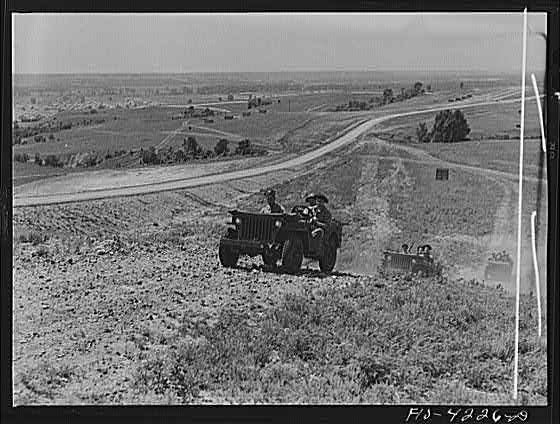
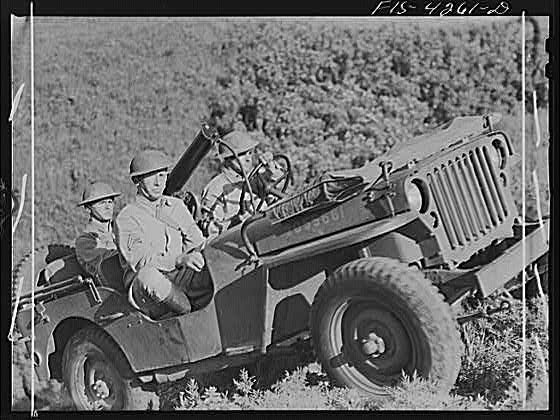
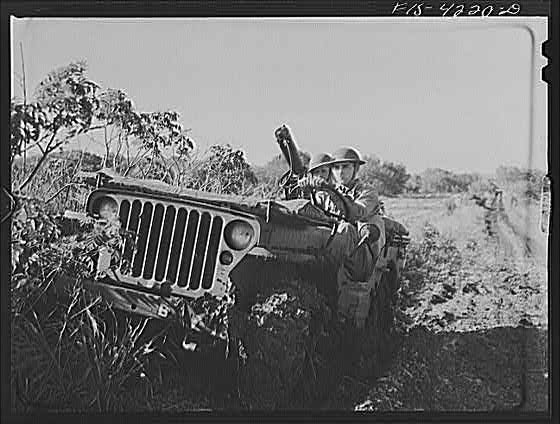
Rubber Drive during WWII
According to the Library of Congress, there was a serious scarcity of crude rubber, so reclaimed rubber made from scrap was required to meet demands. All Americans were encouraged to donate used or worn out rubber articles to the nation’s scrap piles.
As part of that campaign, Judy Canova, star of stage and screen, opened her personal salvage drive for scrap rubber in September 1942 by donating her personal slingshot to the drive. Behind here is an image I’ve seen before, but I’ve never seen it used as part of the ‘Save Rubber’ campaign.
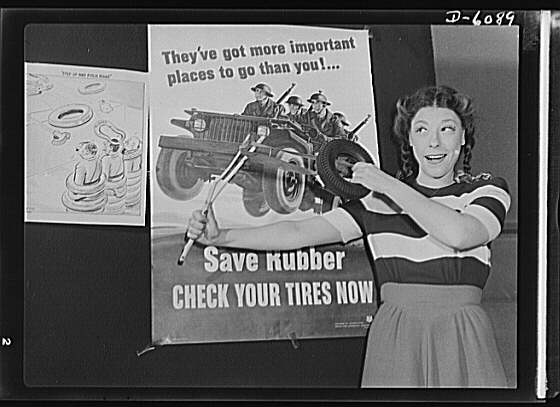
Jeeps in Production
Here are 3 images taken by Alfred Palmer in December of 1941. These three photographs were taken at the Toledo Willys Plant. There are other images that show the machines used to manufacture parts, but I didn’t really find them very interesting.
Library of Congress Link for the below photo
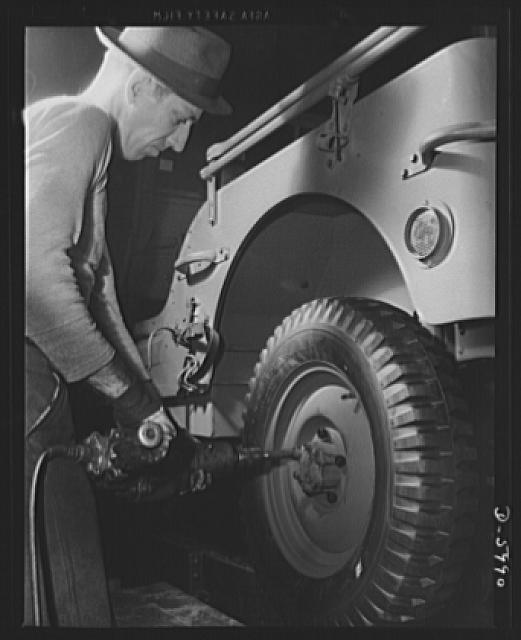
Library of Congress link for the below photo
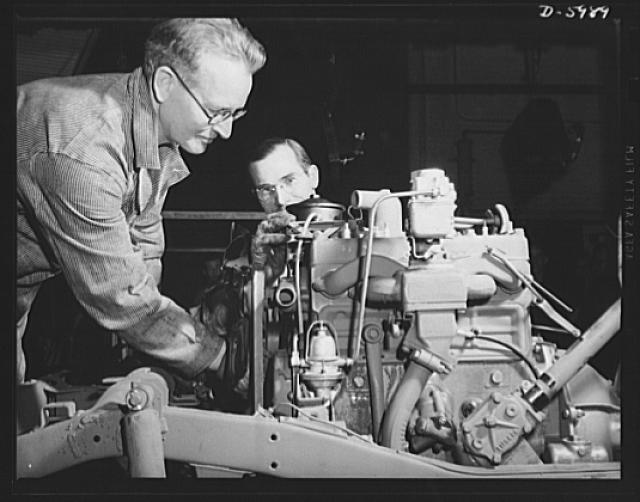
Library of Congress link for the below photo
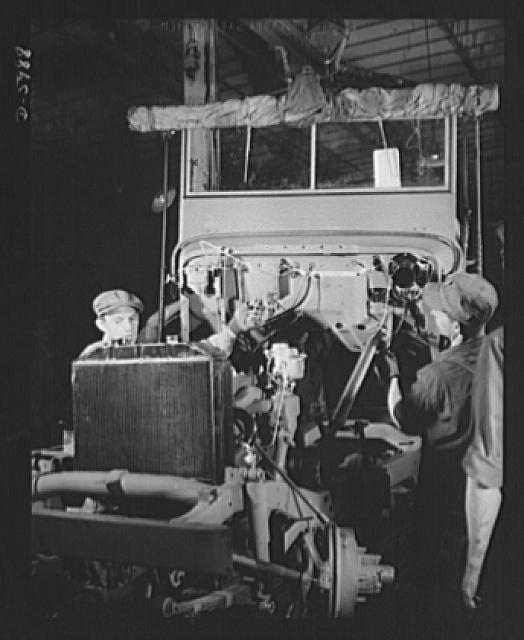
Australian Troops in New Guinea
Here some pics of Australian Troops during WWII from the Library of Congress.
Taken in March, 1943, In New Guinea. This Willys serves as an ambulance for Australian troops in New Guinea. Library of Congress
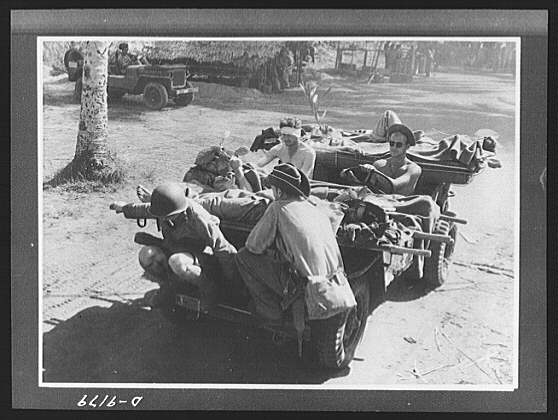
Here’s some troops navigating through some muck. This convoy is carrying military chiefs and cabinet ministers on a visit to battle areas in New Guinea. Air Vice-Marshall G. Jones is shown in the leading vehicle during the tour of the convoy. Library of Congress
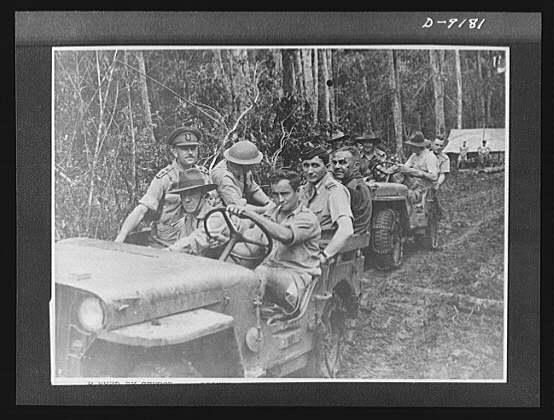
This image might not be Australian Troops, but it is supposed to be taken in October of 1942 in Australia. Library of Congress.
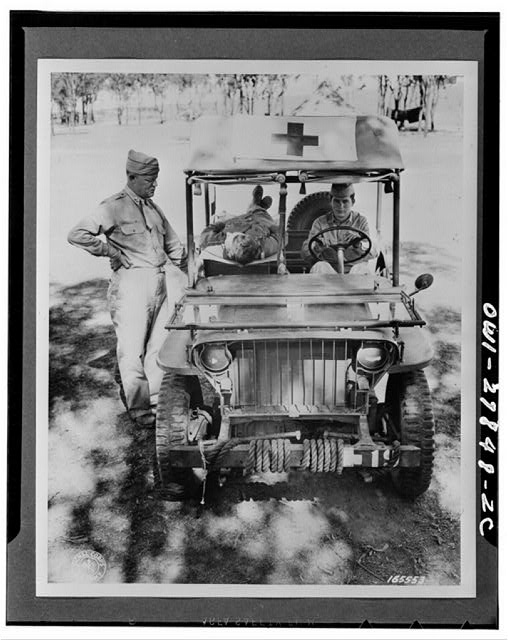
Soldiers, wounded in the fighting in New Guniea, are carried to a base. Library of Congress.
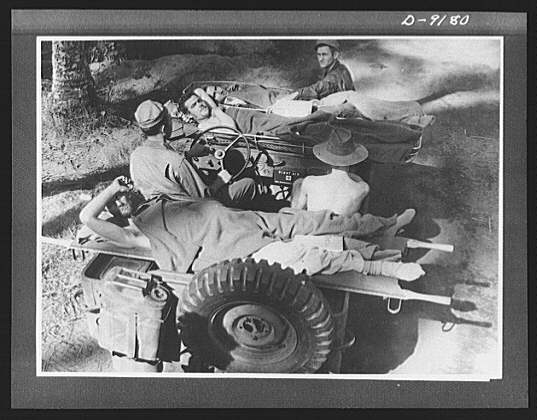
This was taken in March of 1943. Australian troops and supplies go to the front line at Buna. Library of Congress.
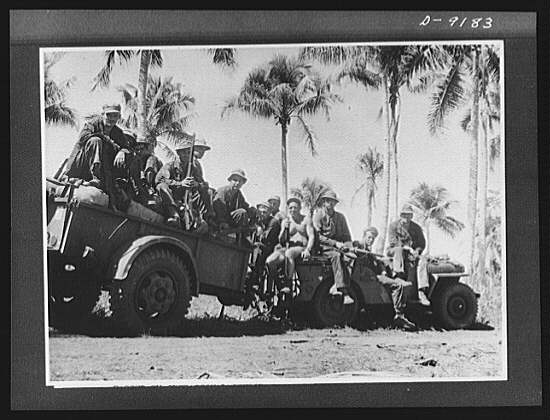
Coast Guard Anti-Saboteur Patrol
I haven’t seen too many Coast Guard Willys Pics. According to the Library of Congress, here’s one from April 1943.
The Library of Congress’ caption to this photo is: Coast Guard anti-saboteur patrol. Vital cargoes of war supplies for America’s far-flung battle lines must also be protected on the docks and piers from enemy attempts at sabotage. The Coast Guard now uses jeeps with armed Coast Guardsmen maintaining vigilant waterfront patrols.
